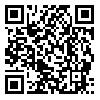Sun, Feb 1, 2026
[Archive]
Volume 6, Issue 2 (6-2014)
IJDO 2014, 6(2): 67-73 |
Back to browse issues page
Download citation:
BibTeX | RIS | EndNote | Medlars | ProCite | Reference Manager | RefWorks
Send citation to:



BibTeX | RIS | EndNote | Medlars | ProCite | Reference Manager | RefWorks
Send citation to:
Kashi Z, Rabiei K, Mosavidarka S S, Bahar A, Akha O, Karami M. The Combination Effect of Five Herbal Drugs . IJDO 2014; 6 (2) :67-73
URL: http://ijdo.ssu.ac.ir/article-1-189-en.html
URL: http://ijdo.ssu.ac.ir/article-1-189-en.html
Zahra Kashi 
 , Khadijeh Rabiei
, Khadijeh Rabiei 
 , Seyyed Saeid Mosavidarka
, Seyyed Saeid Mosavidarka 
 , Adele Bahar *
, Adele Bahar * 
 , Ozra Akha
, Ozra Akha 
 , Mohammad Karami
, Mohammad Karami 


 , Khadijeh Rabiei
, Khadijeh Rabiei 
 , Seyyed Saeid Mosavidarka
, Seyyed Saeid Mosavidarka 
 , Adele Bahar *
, Adele Bahar * 
 , Ozra Akha
, Ozra Akha 
 , Mohammad Karami
, Mohammad Karami 

Endocrinologist, associate professor, Traditional and Complementary Medicine Research Center, Mazandaran University of Medical Sciences ,Diabetes Research Center, Mazandaran University of Medical Sciences, Sari, Iran.
Abstract: (5156 Views)
Objective: There are some studies about the good effects of herbal medicine on blood glucose. This study was designed to evaluate the synergism effect of Peganum Harmala (P.harmala), Quercus Infectoria (Q.i), Vaccinium Myrtillus (V.myrtillus), Citrullos Colocynthis (C.colocynthis), Securigera Securidaca (S.s) on blood glucosein type 2 diabetic patients.
Materials and Methods: Twenty four type 2 diabetic patients were enrolled in this cross over double- blinded clinical trial for receiving two months herbal medication and placebo. The subjects divided into two groups randomly. One group received herbal medication (the doses of 25mg/person of V.myrtillus, S.s and Mazoj and 62.5mg C.colocynthis, P.harmala) and the other group received placebo for 8 weeks. After washout period the herbal medication and placebo were replaced for the next 8 weeks. T-test and Chi-square were used for the comparison of variables between two groups.
Results: After two months, mean fasting blood glucose was 135±27.1 and 139±36.8 mg/dl, (P-value=0.64), and mean glycosylated hemoglobin was 6.5±0.75 and 6.6±0.97 percent, with herbal medication and placebo, respectively (P-value=0.51). About 15.4%of patients after herbal medication and 15.4 % after placebo consumption had 0.8% reduction in HbA1C (P-value=1/0). The mean HOMA IR index, after two months intervention with herbal medication or placebo, was 2.9±1.95 and 3.9±1.97, respectively (P-value=0.05).
Conclusion: low dose combination of P.harmala, Q.i, V.myrtillus, C.colocynthis, S.s improve the insulin sensitivity.Also low dose of this combination did not have significant effect on blood glucose.
Type of Study: Research |
Subject:
Special
Received: 2015/02/22 | Accepted: 2015/02/22 | Published: 2015/02/22
Received: 2015/02/22 | Accepted: 2015/02/22 | Published: 2015/02/22
| Rights and permissions | |
 |
This work is licensed under a Creative Commons Attribution-NonCommercial 4.0 International License. |



